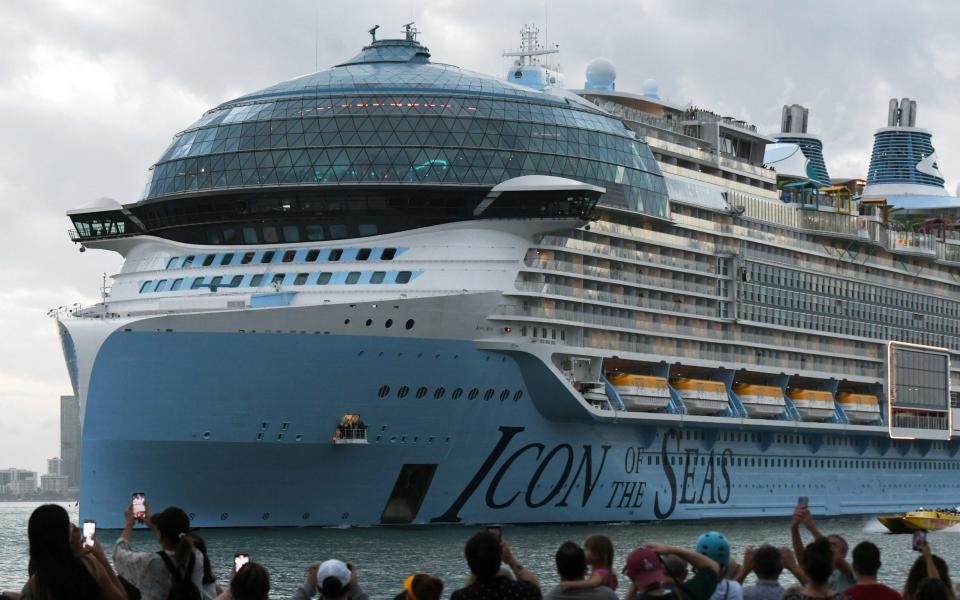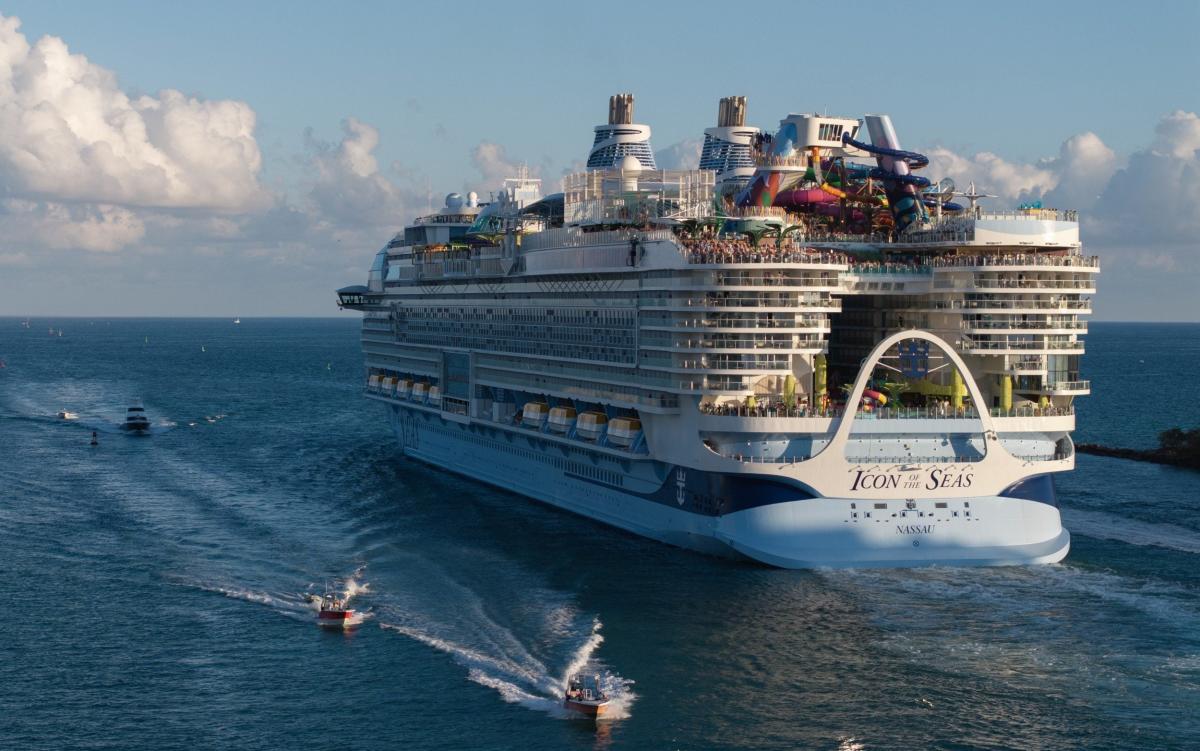Gigantic cruise ships eight times the size of the Titanic and carrying a population equal to that of a small town will set sail by 2050 as demand for luxury travel booms, a study predicts.
The biggest vessels today are already twice as large as in 2000 and could be a further 40pc bulkier in 25 years’ time, according to new projections, reaching a massive 345,000 tons.
The Titanic, a monster in its day, weighed in at only 46,000 tons.
The capacity of the largest vessels is likely to increase to almost 11,000 passengers, compared with 2,500 on the doomed liner. Green travel lobby group Transport & Environment (T&E) compiled the study based on data from shipping consultants Clarksons.
Cruising is already the fastest-expanding tourism industry, with enthusiasm for luxury trips on the water accelerating since Covid as passengers splurge on so-called experiential travel.
Jonathan Hood, T&E’s UK manager for sustainable shipping, said: “With today’s cruise ships making the Titanic look like somebody’s private yacht, the question is, how much much bigger can these giants get?”
The global cruise ship fleet has already increased 20-fold since 1970, when the industry emerged from an ocean liner trade largely killed off by the advent of large passenger jets.
The Icon of the Seas, operated by Royal Caribbean and the largest vessel to date, made its maiden voyage from Miami in January and is five times the size of the Titanic. It features 20 decks, 40 restaurants, seven swimming pools and can carry 7,600 passengers.

Modern cruising offers far more variety than the early days of the industry, when hours lounging in deckchairs were the order of the day, punctuated by whistle-stop tours ashore. Evenings meant buffets, a cabaret and perhaps a place at the captain’s table.
Smaller vessels now offer cultural itineraries and wildlife-viewing expeditions to the Arctic and Antarctic, accompanied by scientists and natural history experts. Virgin Voyages, launched in 2021, is targeting a less elderly clientele with adults-only cruises advertised as a “playground for your inner child”.
T&E said that carbon emissions from cruise ships are becoming an increasing issue and are already 20pc higher than in 2019. Cruising is also polluting, it said, with Southampton, the leading UK cruise port, ranking seventh in Europe for sulphur oxide produced by the sector.
MSC Cruises, Europe’s largest cruise line, aims to cut emissions 15pc with a new tool that will plot routes based on the sequencing of port calls, arrival and departure times, fuel costs and the ship’s speed, as well as the attractiveness of destinations shore excursions.

